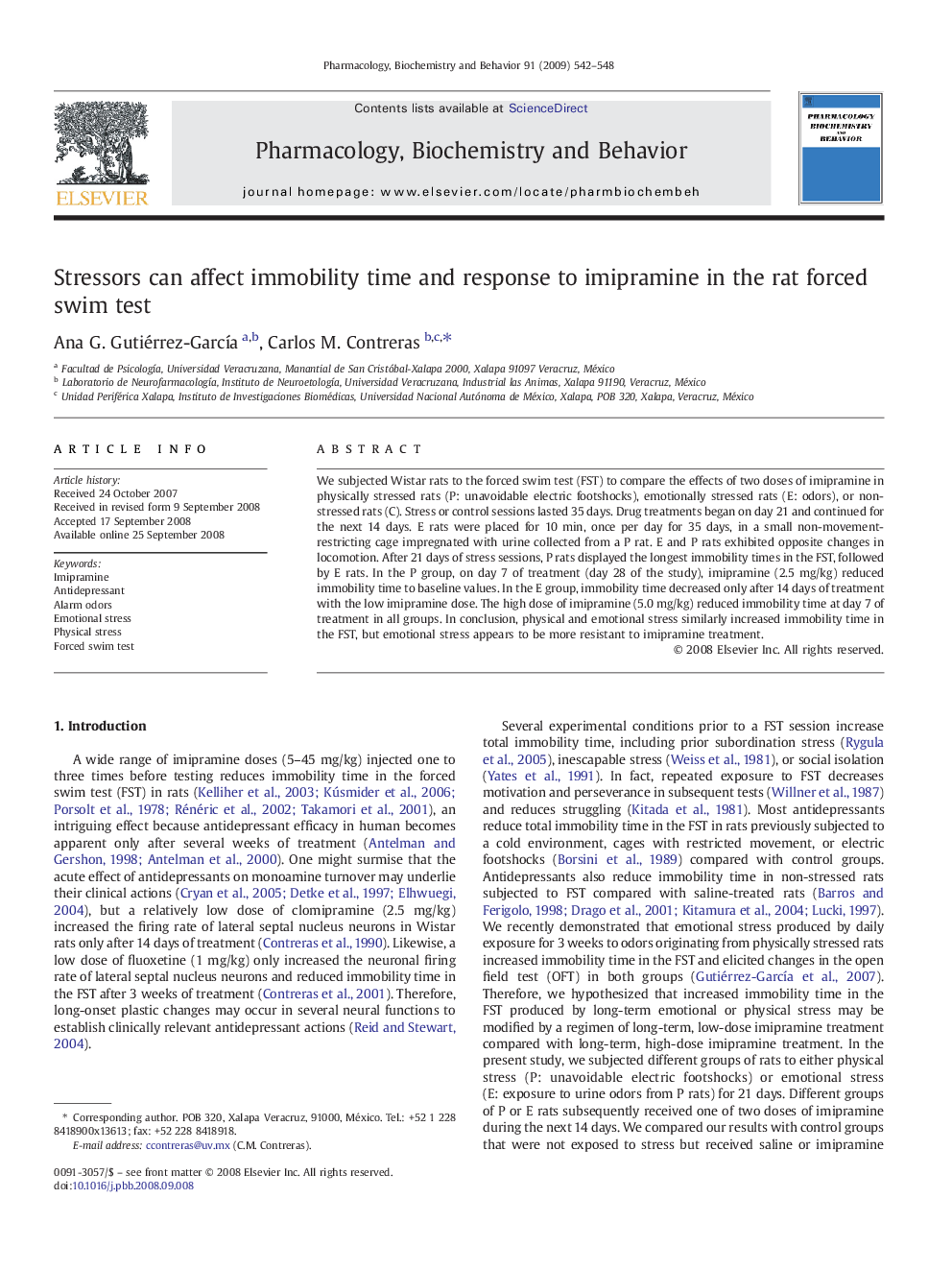| کد مقاله | کد نشریه | سال انتشار | مقاله انگلیسی | نسخه تمام متن |
|---|---|---|---|---|
| 2014026 | 1067140 | 2009 | 7 صفحه PDF | دانلود رایگان |

We subjected Wistar rats to the forced swim test (FST) to compare the effects of two doses of imipramine in physically stressed rats (P: unavoidable electric footshocks), emotionally stressed rats (E: odors), or non-stressed rats (C). Stress or control sessions lasted 35 days. Drug treatments began on day 21 and continued for the next 14 days. E rats were placed for 10 min, once per day for 35 days, in a small non-movement-restricting cage impregnated with urine collected from a P rat. E and P rats exhibited opposite changes in locomotion. After 21 days of stress sessions, P rats displayed the longest immobility times in the FST, followed by E rats. In the P group, on day 7 of treatment (day 28 of the study), imipramine (2.5 mg/kg) reduced immobility time to baseline values. In the E group, immobility time decreased only after 14 days of treatment with the low imipramine dose. The high dose of imipramine (5.0 mg/kg) reduced immobility time at day 7 of treatment in all groups. In conclusion, physical and emotional stress similarly increased immobility time in the FST, but emotional stress appears to be more resistant to imipramine treatment.
Journal: Pharmacology Biochemistry and Behavior - Volume 91, Issue 4, February 2009, Pages 542–548